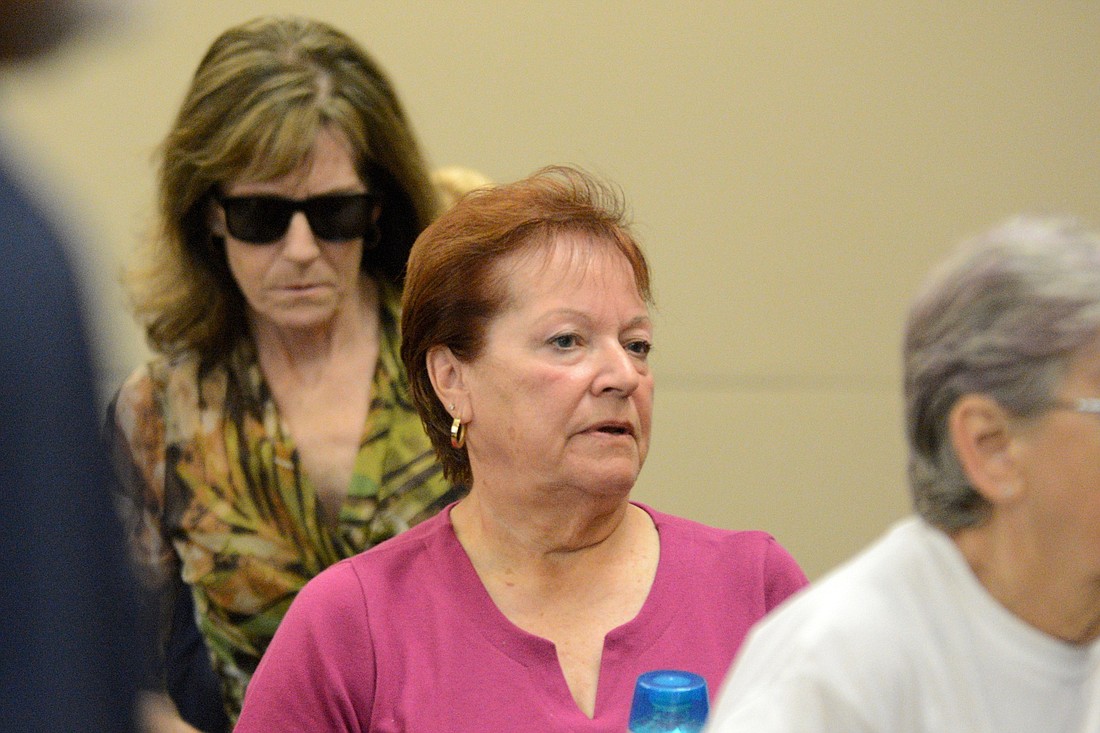- January 22, 2025
-
-
Loading

Loading

Circuit Judge Terence Perkins asked attorney Marcy LaHart to show him an opening that would let him prevent the killing of Cooper, the dog that a city of Palm Coast hearing officer ordered to have euthanized when it bit someone shortly after having already been declared dangerous for biting someone else. But by the end of a court hearing on the case Nov. 5, Perkins wasn't convinced there was one. He will rule on the case at some point in the future.
His scope is narrow: To determine whether the city hearing officer had properly applied the law in the case.
"I’m a dog person," Perkins said to LaHart at the hearing. "I’ve got dogs; I picked up two shelter dogs this very weekend, unrelated to any of this. I’m a dog person. But it’s not what I would do that matters here. It’s whether the hearing officer followed the law, and whether or not under a reasonable interpretation her findings of fact were supported by the evidence."
Florida law states that a dog that's declared dangerous for biting a person, and that then bites a human again and causes severe injury, shall be put down.
Cooper, a 6-year-old hound mix, had been declared dangerous in the city of Port Orange after a bite there while he was owned by current owner Dottye Benton's daughter, Dawn Benton. Then Dottye Benton took custody of him, and he bit a worker who'd arrived at her home in Palm Coast to clean carpets.
Dottye Benton has both appealed to Circuit Court and pressed city officials to stop the dog's killing and allow Cooper to be sent to a western Florida rescue ranch that has offered to take him. The cause attracted a following of people, including some candidates for office, who've shown up at City Council meetings to talk about Cooper, and who showed up for the court hearing Nov. 5.
But city staff and council members have said there's not much they can do: The state law on the matter leaves no room for leeway, and they don't have standing to influence the case's outcome.
LaHart, representing Benton, argued that the city had mishandled documentation in the case by having it emailed to the city and not properly entering out as evidence, that it hadn't met its burden of proof to show that Cooper was a dangerous dog, and that it had not afforded Benton the level of due process that should be required in order to deprive her of her property — in this case, Cooper.
But LaHart wasn't able to provide case law specifically concerning dangerous dog cases that supported her position that a higher burden of proof or level of due process should be required in order to have a dog ordered to be euthanized in a dangerous dog case. She instead cited asset forfeiture cases, but Perkins wasn't convinced by the analogy.
She said that the city of Palm Coast needed to clarify its evidence standards for dangerous dog cases, but couldn't cite anything in state statute that would require that.
And although she said the city of Port Orange, when it made its determination that Cooper was dangerous, had done so without proper jurisdiction because Cooper had by then been moved by Benton from Port Orange to the city of Palm Coast — in violation of Port Orange's requirements — Perkins did not agree with that argument.
"So, you’re saying somehow I should hold that against the city of Port Orange, that your client moved the dog, so they no longer can declare it dangerous?" he said.
He asked LaHart if she had any authority on which to base that proposition. She did not.
Perkins' questioning of the city's attorney, Erin O'Leary, was briefer than his questioning of LaHart.
O'Leary said that the city would have met its burden of proof even under the "clear and convincing" evidence standard, and that Benton herself had been present at the Port Orange hearing at which Cooper had been declared dangerous. And Benton had not appealed that finding, she said.
The initial bite, O'Leary said, would have been the point at which transferring Cooper to the rescue ranch might have been feasible.
But after a second bite of a human, she said, "That is no longer an option. ... The city and the hearing officer can’t disregard the law, and the law offered them no options."
Perkins said he would review the case documents and issue his ruling in the future. But he hadn't been convinced that there was a legal basis to reverse the hearing officer's order that Cooper be euthanized.
"I have to tell you, I mean, I’ve had dogs my entire life," he said. "It’s a precious relationship, and it’s one of the most important relationships for many people, including for my family with my kids. And I’ve looked really, really hard to find if there’s some way within the bounds of the law to do something different under these circumstances in light of the power that we have at the Circuit Court. … but when I came out here today, after having reviewed the entire file and done my own research, I was having a hard time finding a legal basis. Unfortunately, just because I love dogs doesn't mean that I get to ignore the law."